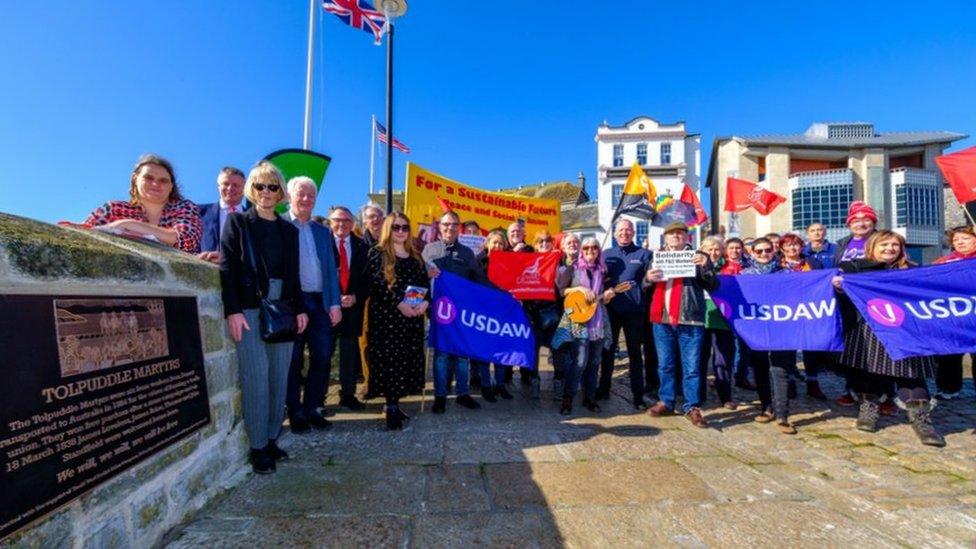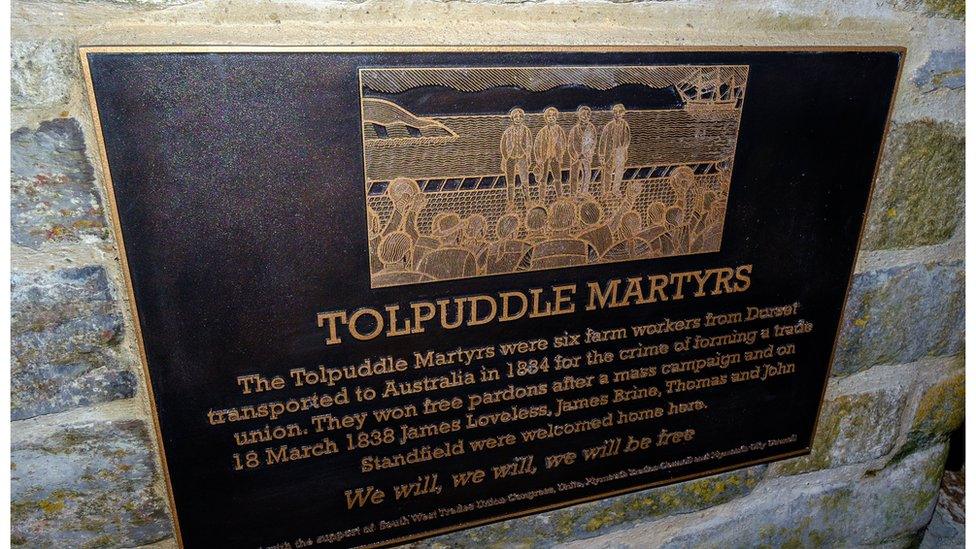Tolpuddle Martyrs: Plaque unveiled in Plymouth
- Published

The plaque was unveiled in Plymouth on Friday
A new plaque has been unveiled to commemorate six agricultural workers who were arrested in 1834.
The plaque in Plymouth pays tribute to the Tolpuddle Martyrs who were sent to an Australian penal colony after having sworn secret oaths to form a trade union.
Four of the workers returned to the UK in 1838 and came ashore at Plymouth.
The South West Trades Union Congress uncovered the plaque on the Mayflower Steps on the Barbican on Friday.
The plaque, commissioned in conjunction with trade unions and Plymouth City Council, features work from artist Clifford Harper, and was unveiled by Trades Union Congress president Sue Ferns.

It features work from artist Clifford Harper
What happened to the Tolpuddle Martyrs?
The six workers were put on trial at Dorchester crown court after they joined together to oppose further cuts to their wages.
An average wage for a farm labourer in 1834 was 10 shillings a week, however they had seen a drop as low as seven shillings a week.
In 1834 swearing an oath was illegal, so the men were arrested and tried by a jury.
The six were found guilty and sentenced to six years in an Australian penal colony.
However, a campaign to free them collected 800,000 signatures and a march was held to support the men.
Four years after their conviction they were given a pardon and returned to England.

Follow BBC News South West on Twitter, external, Facebook, external and Instagram, external. Send your story ideas to spotlight@bbc.co.uk, external.